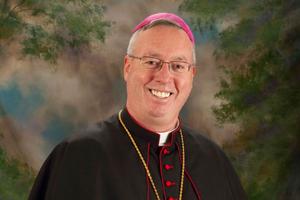Of African Family Values and the Synod
An Interview With Cardinal Berhaneyesus Demerew Souraphiel of Addis Ababa, Ethiopia
Cardinal Berhaneyesus Demerew Souraphiel, 67, of Addis Ababa, Ethiopia, is primate of the Ethiopian Catholic Church, an Eastern Catholic Church in communion with Rome. Born in 1948, Berhaneyesus Souraphiel was ordained to the priesthood on July 4, 1976, and consecrated a bishop on Jan. 25, 1998. On Feb. 14, Pope Francis elevated him to the rank of cardinal. In a recent email interview with the Register, Cardinal Souraphiel discussed the challenges facing the Church in Africa and the synod.
What is the state of the family in Africa, and how can Church leaders there be heard at the upcoming synod on the family?
The Church in Africa, as any other part of the world, is facing challenges. That is why the family needs guidelines on family issues. The African bishops met in Accra, Ghana, last month to speak with one voice and to make their concern for family heard in the forthcoming synod. The teaching of Christ and the traditional teaching of the Church on family should not be altered. Families in Africa are facing challenges of poverty, migration and population growth. The farmers make up 80% of the total population, and farmers live in a subsistence farming system, where they cannot afford to educate their children. They lack health care, potable water and food to sustain their living, which affects the stability of family [life].
Migration is another challenge, where many young people leave the country in search of a better future elsewhere. In some parts of the country, the dead do not have young people to bury them. Some migrants die on the way, before they reach their country of destination. They could have earned a better living if they worked hard in their own country, and we encourage the young to remain in their country and look for possibilities to improve their living within the country. Population growth is a challenge, as Ethiopia is the second-most populous country in Africa, with 96 million people. In order to control population growth, the government of Ethiopia is applying artificial methods of birth control, which is distributed in health institutions free of charge. It is not distributed in Catholic health institutions. The Catholic Church is aware of the problem and tries to reach the married and those preparing to get married to choose natural family planning (ovulation method) and abstain from [any] artificial method.
How can the Church retain its teaching on marriage, the family and human sexuality while reaching out to the marginalized?
The Church has to give marriage preparation to those who prepare for marriage. Those who have received proper marriage preparation succeed in their married life more than those who did not receive any preparation. … Well-organized, adequate marriage preparation is also an occasion to transmit the value of Christian marriage. Pastoral care for married couples is required. The Church, in her preparation for marriage, should not exclude any class. … The Church has to show compassion to those who feel they are marginalized. In my opinion, catechesis is so fundamental to Christian couples. Sometimes people are ignorant of basic Christian teaching on marriage. … Some divorced [and remarried] couples think that they can approach the Eucharist, which manifests the ignorance among Christians.
What do you think the Church in the West can learn from the Church in Africa?
The communitarian/extended family aspect is very important in Africa. People in Africa share together what they own in times of celebration and in times of sorrow. If there is a wedding, it is the feast of the whole community. If there is mourning, it is shared by the entire community.
Children are seen as a gift from God, and the responsibility of looking after children is the responsibility of the entire community. In Africa, people love to have many children who can cultivate land and continue posterity. A person with many children is respected in the eyes of the community. If bringing many children up is not a burden to the family and if the parents are able to educate their children, the upbringing of children according to their possibility is recommendable.The elderly are respected in society, and they are not seen as a burden; people of wisdom play an important role in resolving disputes among its members. The elderly are trusted by society members.
Francis Njuguna writes from Nairobi, Kenya.
- Keywords:
- Oct. 18-31, 2015
















